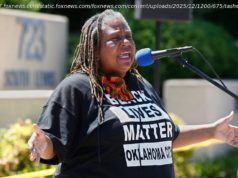The split does not follow party lines.
HARRISBURG — Ah, summertime.
When state legislators return to their home districts to engage in warm-weather traditions like eating hot dogs and sipping soda with constituents at block parties and Fourth of July parades.
Lawmakers in Philly, of course, pay more for their pop and other sugary drinks, thanks to the city’s tax on sweetened beverages. But that may not be the case next summer if the Pa. legislature takes up a bill to kill the soda tax and preempt other municipalities from levying something similar.
It’s a question that could divide members from Philadelphia.
Pa. Rep. Jared Solomon, a Democrat who represents part of Northeast Philly, is adamantly opposed to the bill. He was prepared to offer several amendments before the House recessed for the summer.
It’s “an issue of local control,” Solomon told Billy Penn.
“Many people in Philadelphia and throughout the commonwealth don’t like the soda tax and that’s OK,” he said. But the city has “unique problems,” he added, and the mayor and council “came up with a unique answer to those problems.”
Some of those “many people” who don’t like the soda tax include state Sen. Anthony Williams and state Rep. Angel Cruz. The two Philly Democrats signed on to a friend-of-the-court brief urging the Pa. Supreme Court to strike down the tax. They were joined by city Republican Martina White as well as dozens of other GOP lawmakers.
The 1.5-cent-per-ounce Philadelphia Beverage Tax was levied on distributors to pay for expanded pre-K and improved rec centers, parks, and libraries. About $85 million has been collected since the tax went into effect in January 2017, per the City Controller; year one revenue fell short by about $13 million.
Solomon passionately defended the tax’s funding aims and cited his own district’s recreation centers as positive places badly in need of investment. That includes Max Myers Recreation Center, where he played baseball growing up. Solomon claimed it “hasn’t been touched” since then. “That’s 25 years!” he said.
Cruz declined to comment on the bill, and Williams has not yet provided a response.
The debate about the bill is based around interpretation of the Sterling Act .
The act, passed during the Great Depression, gave Philadelphia the ability to pass taxes on things as long as the state hadn’t already done so. That’s how Philly is able levy its wage tax on nonresidents — and keep the money.
So the question is: Since sweetened beverages are already subject to the state sales tax, doesn’t that mean the soda tax violates Sterling?
The city says no, because the law only taxes distributors. That’s the argument Philadelphia has thus far deployed successfully to fight off a challenge to the law from the beverage lobby and local businesses. The case has made its way from the Philadelphia Court of Common Pleas (where it was dismissed) to the Commonwealth Court of Pennsylvania (where the previous ruling was affirmed) to the highest court in Pennsylvania, which heard arguments in May.
The brief Cruz and Williams (who is a former PepsiCo executive) signed onto argues the tax circumvents the Sterling Act, because higher prices are passed on to customers.
“The issues in this case go far beyond Philadelphia and beyond sweetened beverages,” the brief reads. “If the Court ratifies this tax, the Court’s decision will invite the City of Philadelphia, and other municipalities a license to impose taxes on virtually anything already taxed by the Commonwealth merely by shifting the tax to a different point in the chain of commerce.”
Should the court rule in favor of Philadelphia, it seems very likely House leadership will take up the bill to prevent that scenario from happening.
Solomon, for his part, says the bill “flies in the face” of previous court precedent on Sterling, “a legislative act that provided Philadelphia [the means] to deal with the unique issues that it faces.”
“Everyone at the capitol is constantly saying Philadelphia should deal with our own issues,” he said. “And here we do.”
Locally, City Council President Darrell Clarke has claimed the bill threatens the liquor-by-the-drink tax, a dependable cash cow for the city.
“The fact that authorization from the General Assembly was required for the liquor by the drink tax in the first place,” his spokeswoman told the Philadelphia Business Journal, “ is indicative of the ease with which this critical revenue source could be snatched away from Philadelphia public schools.”
What exactly would the bill do? Introduced by Allegheny County Republican Mark Mustio and co-sponsored by members from both sides of the aisle, HB 2241 is aimed at preventing additional municipalities from passing soda taxes, though critics say it could have broader implications.
Language in the current version prevents municipalities in most circumstances from taxing:
The legislation provides a broad definition for food and beverage:
That doesn’t include ice, alcohol, or over-the-counter and prescription medicines, according to language in the bill.
The legislation passed a House committee in May — with Philly’s Donna Bullock, Michael Driscoll, Thomas Murt, and Chris Rabb voting no — and was sent to the House floor for consideration. It was scheduled for second consideration in June (meaning it could be amended and debated), but didn’t run after all.
When the House returns in the fall, leadership may again bring the bill up for consideration. If it comes up for a third time, lawmakers will be asked to cast a vote.
Asked if Gov. Tom Wolf would sign or veto the bill should it pass the House and Senate, his spokesperson said via email, “Governor Wolf has generally opposed preemption laws and he is a strong supporter of early childhood education. We do not believe Harrisburg politicians should override the legal activities of local municipalities, where those elected officials are directly accountable to their constituents.”
Start
United States
USA — Financial A bill to kill the soda tax could divide Philly’s state lawmakers






